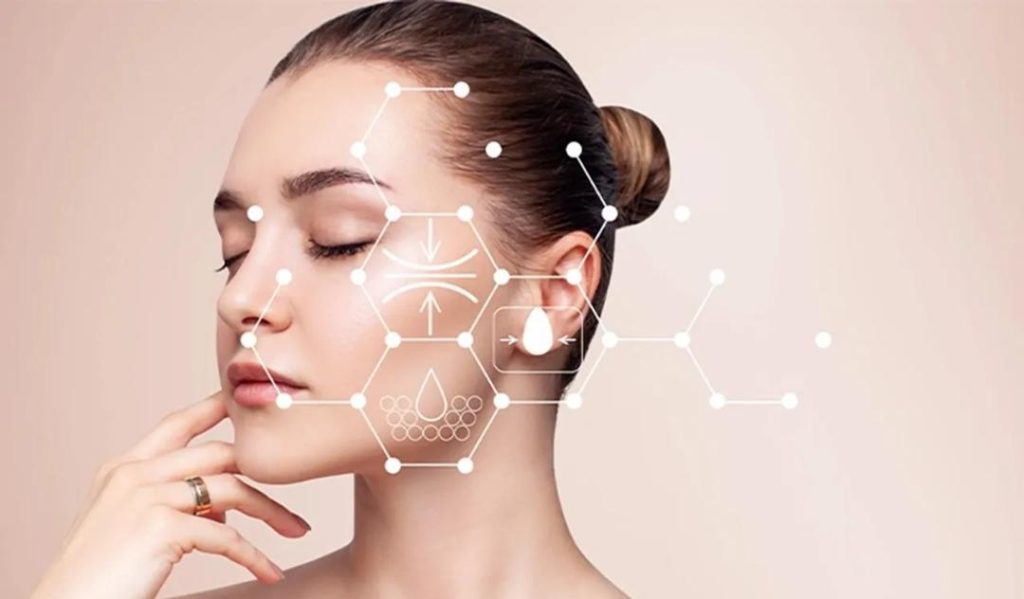
How AI & Innovation are Redefining the Beauty and Wellness Landscape
The skincare industry has undergone a significant transformation over the past few years, moving beyond basic routines to a world of personalized solutions, inclusivity, and cutting-edge innovation. As we look ahead to 2025, skincare trends are reflecting a deeper understanding of diverse skin needs, a commitment to wellness, and a harmony between science and nature.
One of the most significant drivers of this evolution is the increasing adoption of artificial intelligence (AI) in skincare. AI-powered skincare devices and apps are revolutionizing the way we approach skin analysis and treatment. These advanced tools use machine learning algorithms to analyze skin types, identify concerns, and provide personalized recommendations for product usage and treatment plans.
For instance, AI-powered facial analysis apps are becoming increasingly popular, allowing users to upload photos of their skin and receive instant feedback on their skin type, texture, and concerns. These apps can also provide personalized product recommendations, helping users to find the right products for their skin type and concerns.
Another area where AI is making a significant impact is in the development of personalized skincare products. With the help of AI, skincare companies can now analyze vast amounts of data on individual skin types, preferences, and concerns to create customized products that cater to specific skin needs.
Innovative ingredients and formulations are also playing a crucial role in redefining the beauty and wellness landscape. As consumers become increasingly aware of the importance of natural and sustainable ingredients, skincare companies are responding by incorporating eco-friendly and plant-based ingredients into their products.
For example, the trend towards fermented skincare is gaining popularity, with many brands incorporating fermented ingredients such as fermented green tea, fermented rice, and fermented yeast into their products. These ingredients are not only gentle on the skin but also offer a range of benefits, including improved skin elasticity, reduced inflammation, and enhanced skin brightness.
Inclusivity is also becoming a major focus in the skincare industry, with brands recognizing the need to cater to a diverse range of skin tones, types, and concerns. Gone are the days of one-size-fits-all skincare products; today’s skincare market is all about offering a range of products that cater to unique skin needs and preferences.
The rise of niche skincare brands is a testament to this trend, with brands like Fenty Beauty, Glossier, and The Ordinary offering products that specifically cater to diverse skin types, tones, and concerns. These brands are not only offering a range of products that cater to unique skin needs but also promoting a sense of community and inclusivity, with many brands actively engaging with their customers and addressing their concerns.
Wellness is also becoming a major focus in the skincare industry, with many brands recognizing the importance of holistic skincare that addresses not just the skin but also the mind and body. This trend is reflected in the rise of mindfulness-based skincare routines, with many brands incorporating meditation, yoga, and other wellness practices into their product offerings.
For instance, some skincare brands are now offering guided meditation sessions as part of their product packaging, helping users to relax and reduce stress. Other brands are incorporating essential oils and aromatherapy into their products, promoting a sense of calm and relaxation.
Finally, the skincare industry is also seeing a rise in the use of virtual and augmented reality technologies. Virtual try-on features are becoming increasingly popular, allowing users to virtually try on products and see how they would look on their skin before making a purchase.
Augmented reality (AR) is also being used to enhance the skincare experience, with some brands incorporating AR features into their products. For example, some skincare apps use AR to provide users with a virtual consultation, allowing them to see how different products and treatments would look on their skin.
In conclusion, the skincare industry is undergoing a significant transformation, driven by the increasing adoption of AI, innovative ingredients, and a focus on inclusivity, wellness, and virtual reality. As we look ahead to 2025, it’s clear that the future of skincare will be shaped by a deep understanding of diverse skin needs, a commitment to wellness, and a harmony between science and nature.
Source: https://www.shethepeople.tv/author-spotlight/guest-contributions/skincare-trends-for-2025-8728129






